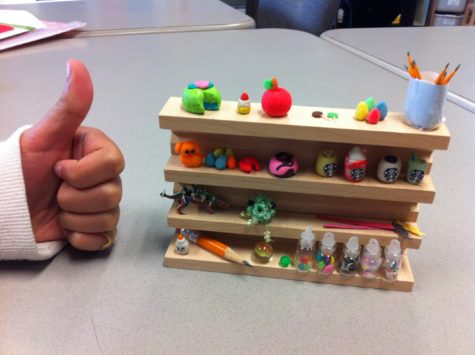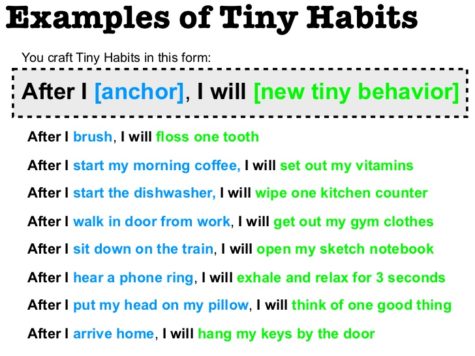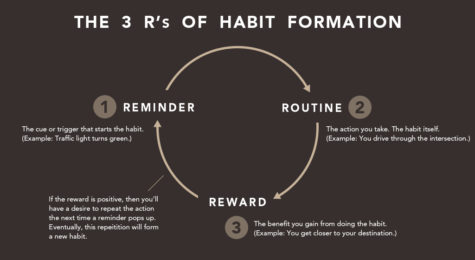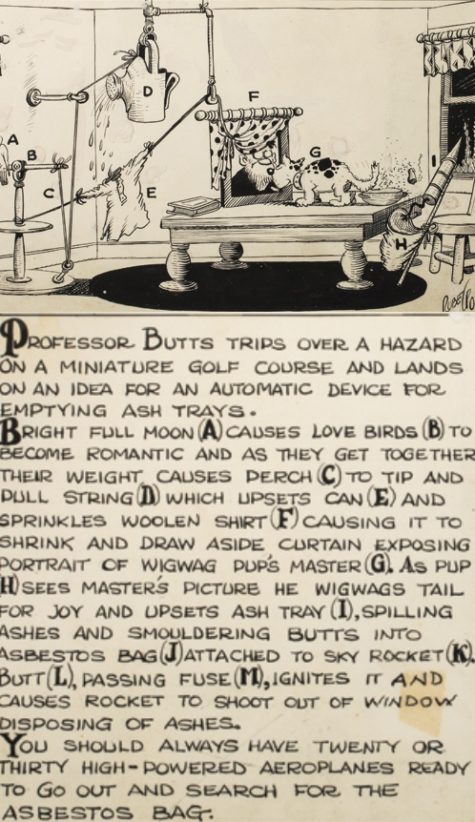Setting Goals
Changing The World
As you will have more and more money and power at your disposal as time goes by, I think now is a good time to sit back and for the next 60 seconds, to contemplate just HOW you are going to use this to change the World for the better.
- What are you going to do?
- Whom are you going to help specifically?
- And how are you going to do that?
“The wealthier you are, the more you have to give.” SFX
From:
- Dr Silvia Hartmann
- The 60 Second Wealth Creators
- Provided by www.DragonRising.com
Setting Goals For This Project
When we did this project back in 2008, we did some goal setting before we actually started the project. I think it’s always a good idea to set some sort of goal, or expectation at the beginning of a project so that it’s easier to look back and see what, if anything, has changed. So, even though it’s a day late, here it is:
Before we get started with our newest project, I think it would be a good idea to make note of our goals and aspirations for the next 30 days. Here are some questions to consider.
- What would you like to accomplish?
- How will you know this project was a success?
- How are your finances right now today?
- Where would you like them to be at the end of the 30 days?
- Is there a project or a goal that you’d like to complete?
- What does prosperity mean to you?
I’d like to encourage every one to post answers to these questions. If you take the time to comment here today, it will be easier to log your success at the end of the 30 days of our “quickie” prosperity techniques. You can be as vague or as specific as you’d like.
My New Morning Routine
So, today, I thought it might be a good idea to make a list of what I would like to include in my own morning routine, to try and figure out what is most important to me and my lifestyle.
I find that I am most attracted to morning routines that sound fun, or exotic, or creative, or so simple and practical that there’s no excuse not to do it. If I could find a morning routine that was also flexible and effectively made each day better for me, I might actually be inclined to do it.
Also, it’s important to give yourself time in the mornings to begin the day. I love the Barack Obama idea of getting up two hours before the “event.” This might work for me.
So…. Here’s what I am thinking about integrating into my mornings:
- Make the bed.
- Drink a cup of hot water with lemon.
- Stretch like a cat before getting out of bed.
- Ganesh mantra when I begin to feel stressed.
- Say “hello” to the sun – outside.
- Music every morning.
- Art every day.
For any routine to work, we first have to actually follow it over and over again until it becomes a habit. In order to do something over and over again (at least for me), it has to give good results, be flexible enough to allow for life’s little dramas, and have something about it that makes me interested and excited.
I especially like the “tiny habits” idea, and am working on how to integrate my morning routine ideas into a tiny habits that are simple and easy to remember.
What about you? What would you like to integrate into a morning routine? Are there any tiny habits that you will be working on? I’d love to hear your ideas and insights!
How Long it Takes to Build a New Habit
My goal for this project was to create a good morning routine, and then to make that routine a daily habit. So far, I’ve found lots of good ideas, and now I’m just wondering how long it will take before my morning routine becomes an habitual behavior.
My research lead me to this article by James Clear:
Phillippa Lally is a health psychology researcher at University College London. In a study published in the European Journal of Social Psychology, Lally and her research team decided to figure out just how long it actually takes to form a habit.
The study examined the habits of 96 people over a 12-week period. Each person chose one new habit for the 12 weeks and reported each day on whether or not they did the behavior and how automatic the behavior felt.
Some people chose simple habits like “drinking a bottle of water with lunch.” Others chose more difficult tasks like “running for 15 minutes before dinner.” At the end of the 12 weeks, the researchers analyzed the data to determine how long it took each person to go from starting a new behavior to automatically doing it.
- The answer?
On average, it takes more than 2 months before a new behavior becomes automatic — 66 days to be exact. And how long it takes a new habit to form can vary widely depending on the behavior, the person, and the circumstances. In Lally’s study, it took anywhere from 18 days to 254 days for people to form a new habit.
In other words, if you want to set your expectations appropriately, the truth is that it will probably take you anywhere from two months to eight months to build a new behavior into your life — not 21 days.
Interestingly, the researchers also found that “missing one opportunity to perform the behavior did not materially affect the habit formation process.” In other words, it doesn’t matter if you mess up every now and then. Building better habits is not an all-or-nothing process.
- Finding Inspiration in the Long Road
Before you let this dishearten you, let’s talk about three reasons why this research is actually inspiring.
First, there is no reason to get down on yourself if you try something for a few weeks and it doesn’t become a habit. It’s supposed to take longer than that! There is no need to judge yourself if you can’t master a behavior in 21 short days. Learn to love your 10 Years of Silence. Embrace the long, slow walk to greatness and focus on putting in your reps.
Second, you don’t have to be perfect. Making a mistake once or twice has no measurable impact on your long-term habits. This is why you should treat failure like a scientist, give yourself permission to make mistakes, and develop strategies for getting back on track quickly.
And third, embracing longer timelines can help us realize that habits are a process and not an event. All of the “21 Days” hype can make it really easy to think, “Oh, I’ll just do this and it’ll be done.” But habits never work that way. You have to embrace the process. You have to commit to the system.
Understanding this from the beginning makes it easier to manage your expectations and commit to making small, incremental improvements — rather than pressuring yourself into thinking that you have to do it all at once.
- Where to Go From Here
At the end of the day, how long it takes to form a particular habit doesn’t really matter that much. Whether it takes 50 days or 500 days, you have to put in the work either way.
The only way to get to Day 500 is to start with Day 1. So forget about the number and focus on doing the work.
Tiny Habits
What is a “Tiny Habit”?
- A personal behavior
- Done at least once a day
- Takes less than 30 seconds
- Requires little effort
I love the idea of creating a series of “tiny habits” rather than trying to follow a possibly complex, rigid, or cumbersome morning routine. I’m thinking that something like this might work better for me because it’s so simple and flexible.
How To Start New Habits That Actually Stick
Your life today is essentially the sum of your habits.
- How in shape or out of shape you are? A result of your habits.
- How happy or unhappy you are? A result of your habits.
- How successful or unsuccessful you are? A result of your habits.
What you repeatedly do (i.e. what you spend time thinking about and doing each day) ultimately forms the person you are, the things you believe, and the personality that you portray.
But what if you want to improve? What if you want to form new habits? How would you go about it?
Turns out, there’s a helpful framework that can make it easier to stick to new habits so that you can improve your health, your work, and your life in general.
Let’s talk about that framework now…
Every habit you have — good or bad — follows the same 3–step pattern.
- Reminder (the trigger that initiates the behavior)
- Routine (the behavior itself; the action you take)
- Reward (the benefit you gain from doing the behavior)
I call this framework “The 3 R’s of Habit Change,” but I didn’t come up with this pattern on my own. It’s been proven over and over again by behavioral psychology researchers.
I first learned about the process of habit formation from Stanford professor, BJ Fogg. More recently, I read about it in Charles Duhigg’s best–selling book, The Power of Habit (audiobook).
Duhigg’s book refers to the three steps of the “Habit Loop” as cue, routine, reward. BJ Fogg uses the word trigger instead of cue. And I prefer reminder since it gives us the memorable “3 R’s.”
Regardless, don’t get hung up on the terminology. It’s more important to realize that there’s a lot of science behind the process of habit formation, and so we can be relatively confident that your habits follow the same cycle, whatever you choose to call it.
What a Habit Looks Like When Broken Down
Before we get into each step, let’s use the 3 R’s to break down a typical habit. For example, answering a phone call…
- Your phone rings (reminder).
This is the reminder that initiates the behavior. The ring acts as a trigger or cue to tell you to answer the phone. It is the prompt that starts the behavior.
- You answer your phone (routine).
This is the actual behavior. When your phone rings, you answer the phone.
- You find out who is calling (reward).
This is the reward (or punishment, depending on who is calling). The reward is the benefit gained from doing the behavior. You wanted to find out why the person on the other end was calling you and discovering that piece of information is the reward for completing the habit.
If the reward is positive, then you’ll want to repeat the routine again the next time the reminder happens. Repeat the same action enough times and it becomes a habit. Every habit follows this basic 3–step structure.
The 3 R’s of Habit Change
All habits form by the same 3–step process. Here’s an example: the traffic light turns green, you drive through the intersection, you make it closer to your destination. Reminder, routine, reward.
How can you use this structure to create new habits and actually stick to them? Here’s how…
- Step 1: Set a Reminder for Your New Habit
If you talk to your friends about starting a new habit, they might tell you that you need to exercise self–control or that you need to find a new dose of willpower.
I disagree.
Getting motivated and trying to remember to do a new behavior is the exact wrong way to go about it. If you’re a human, then your memory and your motivation will fail you. It’s just a fact.
This is why the reminder is such a critical part of forming new habits. A good reminder does not rely on motivation and it doesn’t require you to remember to do your new habit.
A good reminder makes it easy to start by encoding your new behavior in something that you already do.
For example, when I wrote about the secret to sticking to little healthy habits, I said that I created a new habit of flossing by always doing it after brushing my teeth. The act of brushing my teeth was something that I already did and it acted as the reminder to do my new behavior.
To make things even easier and prevent myself from having to remember to floss, I bought a bowl, placed it next to my toothbrush, and put a handful of pre–made flossers in it. Now I see the floss every time I reach for my toothbrush.
Setting up a visible reminder and linking my new habit with a current behavior made it much easier to change. No need to be motivated. No need to remember.
It doesn’t matter if it’s working out or eating healthy or creating art, you can’t expect yourself to magically stick to a new habit without setting up a system that makes it easier to start.
- How to Choose Your Reminder
Picking the correct reminder for your new habit is the first step to making change easier.
The best way I know to discover a good reminder for your new habit is to write down two lists. In the first list, write down the things that you do each day without fail.
For example…
- Get in the shower.
- Put your shoes on.
- Brush your teeth.
- Flush the toilet.
- Sit down for dinner.
- Turn the lights off.
- Get into bed.
You’ll often find that many of these items are daily health habits like washing your face, drinking morning tea, brushing your teeth, and so on. Those actions can act as reminders for new health habits. For example, “After I drink my morning tea, I meditate for 60 seconds.”
In the second list, write down the things that happen to you each day without fail.
For example…
- Traffic light turns red.
- You get a text message.
- A commercial comes on TV.
- A song ends.
- The sun sets.
With these two lists, you’ll have a wide range of things that you already do and already respond to each day. Those are the perfect reminders for new habits.
For example, let’s say you want to feel happier. Expressing gratitude is one proven way to boost happiness. Using the list above, you could pick the reminder “sit down for dinner” and use it as a cue to say one thing that you’re grateful for today.
“When I sit down for dinner, I say one thing that I’m grateful for today.”
That’s the type of small behavior that could blossom into a more grateful outlook on life in general.
- Step 2: Choose a Habit That’s Incredibly Easy to Start
Make it so easy you can’t say no.
—Leo Babauta
I’ve written about this before, but your life goals are not your habits.
It’s easy to get caught up in the desire to make massive changes in your life. We watch incredible weight loss transformations and think that we need to lose 30 pounds in the next 4 weeks. We see elite athletes on TV and wish that we could run faster and jump higher tomorrow. We want to earn more, do more, and be more … right now.
I’ve felt those things too, so I get it. And in general, I applaud the enthusiasm. I’m glad that you want great things for your life and I want to do what I can to help you achieve them. But it’s important to remember that lasting change is a product of daily habits, not once–in–a–lifetime transformations.
If you want to start a new habit and begin living healthier and happier, then I have one suggestion that I cannot emphasis enough: start small. In the words of Leo Babauta, “make it so easy that you can’t say no.”
How small? BJ Fogg suggests that people who want to start flossing begin by only flossing one tooth. Just one.
In the beginning, performance doesn’t matter. Become the type of person who always sticks to your new habit. You can build up to the level of performance that you want once the behavior becomes consistent.
Here’s your action step: Decide what want your new habit to be. Now ask yourself, “How can I make this new behavior so easy to do that I can’t say no?”
- What is Your Reward?
It’s important to celebrate. (I think that’s just as true in life as it is with habits.)
We want to continue doing things that make us feel good. And because an action needs to be repeated for it to become a habit, it’s especially important that you reward yourself each time you practice your new habit.
For example, if I’m working towards a new fitness goal, then I’ll often tell myself at the end of a workout, “That was good day.” Or, “Good job. You made progress today.”
If you feel like it, you could even tell yourself “Victory!” or “Success!” each time you do your new habit.
I haven’t done this myself, but some people swear by it.
- Floss one tooth. “Victory!”
- Eat a healthy meal. “Success!”
- Do five pushups. “Good work!”
- Give yourself some credit and enjoy each success.
Related note: Only go after habits that are important to you. It’s tough to find a reward when you’re simply doing things because other people say they are important.
- Where to Go From Here
In general, you’ll find that these three steps fit almost any habit. The specifics, however, may take some work.
You might have to experiment before you find the right cue that reminds you to start a new habit. You might have to think a bit before figuring out how to make your new habit so easy that you can’t say no. And rewarding yourself with positive self–talk can take some getting used to if you’re not someone who typically does that.
It’s all a process, my friend.
By James Clear
22 Ways To Wake Up And Feel Super Positive For The Day
Do you ever wake up and you remember all the stuff you have to do, and you just want to hide under the covers and not come out? That feeling is all too known for many of us but thankfully you don’t have to ever feel this way.
Did you know that our thoughts create our emotions? Since we have total control over our thoughts (I know it might not feel like it sometimes), you also have the power to start your day on a super positive note each and every day. Here are some ways to help you get in the right mindset and enjoy every day as it comes.
- 1. Try to remember your dreams
Whether you want to analyze them later or just use them as an entertaining and fun video that plays in your head, dreams are a great way to feel more positive for the day. I recommend making sure you get enough sleep but also keeping a dream journal next to your bed so that you can write the dream down as soon as you wake up. Over time, remembering them will become easier and you will be able to make more sense of them as they relate to your own life.
- 2. Consider what makes you happy
Thoughts create emotions. Happy thoughts create happy emotions. It’s super simple but it’s so true – think about the things you love to do that make you happy. Just visualizing doing something that makes you happy is bound to make you actually feel happier in return.
- 3. Give gratitude
Gratitude is one of the most important practices I always recommend my clients. It’s easy to get caught in the cycle of negative thinking and eventually forgetting how good you actually have it. When you spend some time in the morning to list out 5 things you are grateful for, it shifts your whole mindset and your day becomes so much brighter.
- 4. Relax your body
Without physical relaxation, we breed stress and anxiety in our body. Make sure your daily routine includes self-care that allows you to relax your body. Whether it’s a massage, yoga, or a nice bath – relaxing your body is important ingredient to feeling positive every day.
- 5. Focus on breathing
Throughout the day, the more stress and to-do’s get put on our plates, the more anxiety heighten. We may not even realize that our breathing changes and becomes more shallow as we get stressed out. A really quick and simple tip is take a moment and notice your breathing. Is it shallow? Take some deeper breaths and let them out very slowly. Do this a couple of times and enjoy an increased feel of relaxation within minutes.
- 6. Don’t attach to your thoughts
Each day we create stories around the circumstances and events that surround us. Researchers say that we have about 60,000 thoughts per day! How exhausting is that? The less you attach to your thoughts and let them pass through without believing them and letting them affect you, the more likely you are to feel at peace and relaxed throughout the day.
- 7. Stay off social media
If you’re one of the people that checks their social media or email as soon as you wake up – stop that now! I didn’t realize how much it affects you until you stop doing it for a while. Each morning spent away from social media is so much more relaxed, peaceful, and joyful. We aren’t screamed at by a constant influx of information and messages and our mind has the capacity to just be.
- 8. Prepare a delicious breakfast
Instead of wasting your morning checking your Facebook feed, get yourself to the kitchen and prepare a beautiful delicious (and nutritious) breakfast! Protein pancakes anyone? Sunny side eggs? Perfection. Now, isn’t that so much better?
- 9. Establish a meditation practice
Making meditation a non-negotiable in your routine can be a real life-changer! Not only will you feel more peaceful and centered, you will feel more in tune with your body and your surroundings. Don’t worry if you aren’t a seasoned meditator yet. Meditation isn’t just sitting cross-legged humming “Ommmm” – you can do so much more, including dance meditation, mindfulness techniques, hypnosis, and more.
- 10. Try self-hypnosis recordings
Speaking of hypnosis, this is one of the easier and best ways to get yourself into meditation. There are tons of recordings available for purchase online (99 cents per track on Amazon!) and each one is created specifically to help with a certain problem. Want to feel more positive? There’s a lot of those to choose from.
- 11. Don’t check your phone until much later
Just as you shouldn’t check your social media right when you wake up, try to refrain from checking your phone until a little bit later too. You’ll really notice how much technology can have a negative effect on our mind and energy levels. Don’t get sucked in too early!
- 12. Go for a morning run
Ahhh… endorphins! What better way to start the day than with these feel-good hormones? Go for a nice run in the morning, before the weather gets too hot, and you’ll be glad you did.
- 13. Do an energizing yoga sequence
Another way to get some endorphins flowing in the morning is an energizing yoga sequence. Hop out of bed, roll out your mat and get bendy!
- 14. Play with your pets
I had a friend who always played with her dog in the morning. They would get breakfast, stretch out and play before heading off to work. It helped her connect with her pet, feel happier, and start the day off on a joyful note. I mean, it’s nearly impossible to be angry or sad after playing with your beloved pet.
- 15. Read an inspiring book or article
A nice part of your morning routine could be reading blogs you subscribe to. Reading something inspiring and motivating in the morning is bound to get you revved up and ready to tackle the day.
- 16. Listen to a great inspiring podcast
Similarly as with an inspiring book – listen to a great podcast to get your mind buzzing with motivation to get yourself to the next step in your day.
- 17. Set your alarm to an uplifting tune
Consider changing your ring tone for the alarm. Don’t use the crazy buzzing noise. Instead, put something nice and melodic that begins soft and gets increasingly louder as time goes. It won’t jerk you awake and you are more likely to enjoy waking up to a lovely sound than you are to something intense, like a regular alarm noise.
- 18. Create a routine that includes morning self-care
Whatever that might be for you – meditation, yoga, reading, a walk… whatever it is, make sure you make it a part of your routine and something that is non-negotiable. After all having a great day is non-negotiable! The more you do this, the easier it will become.
- 19. Look at something beautiful
A great way to shift your mood and become more peaceful and uplifted automatically is to look at something beautiful. Maybe it’s a flower, maybe it’s your husband or wife, maybe it’s a painting that’s hanging in your room… whatever it is, take a minute or two just to appreciate its beauty. You’ll be amazed how quickly this tactic works to bring your mood way up!
- 20. Wake up to clean room
The messier your room is, the messier your mind will feel. I always tell my clients that in order to get your mind organized, you have to get your space organized first. Clean up your room and you’ll notice how much the energy in the room becomes more peaceful and welcoming.
- 21. Ask yourself “How can I make this day amazing?”
It’s a simple question but it’s so powerful. By simply asking yourself “How can I make today amazing?” you make yourself realize that you are in control of how your day goes and how you feel about it. Then, do the things to make it amazing!
- 22. Smile regardless of how you might feel at first
Even if you feel like you want to stay in bed for the entire day and mope around, don’t. Smile to yourself. Better yet, look at yourself in the mirror and smile at yourself. My dad does this every single morning for a minute or two and he swears it changes his whole mood and outlook for the entire day. It’s worth a try!
From: Life Hack
4 Morning Success Rituals
“As a cook, your station, and its condition, its state of readiness, is an extension of your nervous system. The universe is in order when your station is set. Mise-en-place (a French phrase meaning “putting in place”) is the religion of all good line cooks.”
~Chef and best-selling author Anthony Bourdain
As a therapist for many an anxious nervous system, I love productivity hacks. As a die-hard morning fan, I’m drawn to tips, tricks and tools focusing on the wee-hours of each day.
If you found yourself damning the dawn reference above, the following four steps just may convert you to a morning-ish person:
1. Set Your Intentions
“When walking, walk. When eating, eat.”
~Zen Proverb
It’s one thing to want to feel more calm and prepared for the day ahead, and another to actually execute your plan.
I suggest starting the night before, thereby ensuring adequate rest. For adults between the ages of 18 and 64+, that translates to 7 to 9 hours nightly. Sleep is the cornerstone of mental wellness, but it’s rarely a priority. To reinforce this step, ask yourself about the last time you functioned bright-eyed and bushy-tailed after burning the midnight oil? (college kids will kindly exempt themselves).
Now close your eyes and envision the last time you were calm and in control. Channel that situation and remember that you’re capable of slowing down and getting the job done. Mindset is key to starting.
2. Think Proactive vs Reactive
According to social psychologist Dr. Ron Friedman, if you spend the first 10 minutes of each day checking and answering email, you’re priming your mind for a reactive state. Rather than go on the defensive each morning, take that time back and reframe it to “me time.” When you see yourself as having an internal locus of control, you’re less likely to reinforce anxious patterns of thinking.
If you’re at a loss for how to undo your reactive ways, consider these easy options first thing in the morning:
- Drink a glass of water (hydration is vital to mood and health)
- Read a self-help, business, or leisure book.
- Meditate for five minutes.
- Think healthy thoughts.
3. Plan, Plan and Plan
“Chefs like Anthony Bourdain have long appreciated that when it comes to exceptional cooking, the single most important ingredient of any dish is planning. It’s the ‘Meez’ that forces Bourdain to think ahead, that saves him from having to distractedly search for items midway through, and that allows him to channel his full attention to the dish before him.” ~Ron Friedman
Start each morning with a mini-planning session. Because our minds and body are fresh, take advantage of your “clean slate.” Resist the urge to replay yesterday’s soundtrack, or get sucked into worrying about tomorrow. Stay in the here-and-now, and think steps, not lofty goals.
4. Own Your 120-Minutes
“It turns out that most people are productive in the first two hours of the morning. Not immediately after waking, but if you get up at 7 you’ll be most productive from around from 8-10:30. One of the saddest mistakes in time management is the propensity of people to spend the two most productive hours of their day on things that don’t require high cognitive capacity (like social media).” ~Dan Ariely, behavioral economist at Duke University.
Choose two things you can accomplish today, above all else. Just deux. Let’s be honest — those items you want to get through but never seem to are probably not so urgent. After all, we make time for what’s important. Many productive people write their upcoming tasks the night before to establish tomorrow’s To-do list.
Before you roll up your productivity sleeves, remove all necessary distractions. Turn off the notifications on your mobile device, close the open tabs on your computer, and let others in your home or office know that you’re not to be disturbed for the next couple of hours.
When it comes to beginning your day, take it from a master chef. Set up the essential ingredients for the task ahead. You no longer have to be distracted about every single item which requires your attention. Focus on what’s right in front of you and start with a single bite.
From: Psychology Today
16 Better Ways To Start Your Day
I bet I can predict what your morning looks like: You wake up to a generic alarm clock sound, roll out of bed, get dressed, grab a mediocre breakfast, and leave the house still rubbing your eyes and yawning.
How’d I know? Because we all do it—it’s the only way we know how. (And if you’re not one of us traditionalists, I salute you!)

However, there are so many better ways to start your day than by following the usual patterns. Yes, you can journal, exercise, read, or meditate—but you can also get a little crazy and try any of these 16 other unique strategies to having better morning. While you can’t possibly incorporate all 16 (or can you?), you can start with one or two.
1. The Two-Minute Exercise
A lot of people suggest that you meditate every morning to increase your energy, confidence, and sense of stability—but let’s be real: No one has time to really meditate and fully free their mind. Instead, Muse writer Lily Herman suggests trying these two super-quick breathing exercises when you wake up.
2. The Seven-Minute Routine
For the people in a hurry, take seven minutes to think, breathe, doodle, and make a plan. Even this small amount of time can create a positive mindset for the rest of your day.
3. The 15-Minute Routine
We can almost guarantee that John Gannon’s morning routine will change the way you brainstorm.
What does he do? He gives thanks, writes to get his creative juices flowing, and jots down 10 new ideas every day. The results: After 30 days of doing this and sharing his input with others, he came up with an exciting new product for his startup that lead to great success and got offered a job. And it only took 15 minutes out of his day!
4. Take a Shower
Only like to get clean at night? You might want to rethink that. As Muse writer Jennifer Winter says , “Jumping in the shower has a way of shocking your system and getting your circulation going. If you absolutely can’t get yourself into the shower, then at a minimum do a thorough scrubbing of your face in the sink and finish off with a splash of cold water. You’ll look and feel more awake than you would if you’d simply rolled out of bed.”
5. Buy a Festive Coffee Mug
You’d be surprised how much your cup of coffee can brighten your morning—and I’m not talking about the caffeine part. Spruce up your routine with something that’ll make you smile, laugh, or even entertain you while you sip. For some ideas, look at this shopping guide and this one .
6. Use an Alarm Clock That Actually Works
Yes, it is possible to find an alarm that doesn’t make you want to hit snooze a bagillion times. Just remember—once you’re out of bed, everything can only get easier. So try these better solutions on for size—waking up will be a piece of cake. (Just kidding, waking up will never compare to cake.)
7. Blast Some Great Tunes
There’s no better way to stimulate your mind in the morning—without exhausting it back to sleep—than by listening to music. And we’ve got the perfect playlist for just about every mood you’ll face.
8. Stay in Bed Longer
“For many, the hardest part about waking up and getting out of bed is the “getting out of bed” part. So, don’t! Winston Churchill spent the first three or four hours of each day working from bed, reading stacks of mail, and dictating responses to his secretaries,” writes Muse contributor Alexandra Franzen . While it’s unlikely you have the luxury of three to four hours (unless you’re waking up right after you go to sleep), treat yourself to 10 or so minutes.
9. Create Something
Muse’s Senior Editor of Branded Content Erin Greenawald has three suggestions for starting your day right : Have any networking meetings first thing in the morning, listen to podcasts while you get up and ready, and finally, instead of reaching for your phone, reach for paper and a pencil, or ingredients for breakfast: “It doesn’t have to take long, and it doesn’t have to be big—or even good, for that matter—but you’ll be starting your day by engaging a part of your brain that many of us don’t get to work with often.”
10. Create a Step-by-Step Schedule
If you plan out, step-by-step , how long each AM task takes you to complete, you’ll more accurately see how much time you truly need to get ready in the morning. You might also realize what things can be done later in the day, or even the night before. And once you set a realistic timeframe for showering, getting dressed, or eating breakfast, stick to it. Muse Career Coach Adrian J. Hopkins believes that “if you take a moment to plan ahead, you’ll find that one stitch, in time, really does save nine.”
11. Do the Dishes
According to a article by LearnVest , “Rolling up your sleeves to hand wash a sink full of dirty dishes from last night’s dinner may be the last thing you want to do first thing in the morning, but a recent study found that mindfully cleaning dishes—in other words, staying in the moment while scrubbing away—reduced anxiety and made study subjects feel more inspired.” And bonus, you won’t have to worry about them later when you’re exhausted from work!
12. Check the News (Fast!)
The first thing I do each morning is open my email on my phone to read theSkimm, an entertaining roundup of breaking headlines. It’s just what I need to start to stimulate my mind and think about my day without thinking too hard. For even more quick-fix news outlets, check out this list .
13. Exercise for 10 Minutes
Muse writer Kat Moon says that this science-backed exercise tip will increase your mental processing speed—and it doesn’t require any heavy lifting or five-mile sprints. For example, you can take a walk around the block, watch a yoga tape, or even do a few rounds of push-ups. (True story: the Muse team can attest to this strategy.)
14. Set Your Clocks Five Minutes Ahead
It seems silly, but even just tricking your brain into thinking you’re late will help you wake up faster. Plus, you’ll always be guaranteed to be on time.
Muse Managing Editor Jenni Maier loves using this technique to get moving in the morning : “Just seeing the (incorrect) time on your microwave, in the car, and anywhere else you can manually change it will make you start operating five minutes ahead. I can’t explain it, I can just tell you that every morning I leave my house at 8:10 AM, look down at my phone, see it’s really only 8:05, and think about the fact that my stupid stove clock tricked me again.”
15. Play Some Soothing Ambiance
Fun fact: Ambient noise is proven to increase creativity and productivity—so consider turning on the sounds of a coffee shop or a cozy rainy day to set your mood. To create your own background noise, try apps such as Noizio or A Soft Murmur .
16. Keep Your Blinds Open
Sunlight is the best way to naturally wake your body up—so don’t hide from it. Muse writer Lily Herman suggests that this will make the night-to-morning transition a lot easier: “It’s hard to go from pitch-black darkness to bright light (especially if you hop on your phone or computer first thing in the morning), so make it easier on yourself by keeping your blinds somewhat open. I can personally attest to the fact that not drawing my curtains means it’s a little less jarring to wake up to my alarm each morning.”
From: The Muse
Six Months Later
Six months ago we completed The Little Engine That Could project. The idea was to set a goal, and then work to accomplish it within 30 days. This post is a six month follow up on that project to see what if anything has changed for you since April 1st.
- If you participated in the project, and did not complete your goal – has it been completed since then?
- Are you more successful with setting goals?
- Has anything changed for you with regards to motivation, procrastination, and success in doing whatever it is that you set out to do?
- Any other thoughts you’d like to share?
- Radical Self Care Project Overview by shirleytwofeathers - No Comment
- Radical Self Care Image Gallery by shirleytwofeathers - No Comment
- It’s A Wrap by shirleytwofeathers - 3 Comments
- Something To Consider by shirleytwofeathers - 1 Comment
- Nurturing Your Precious Self by shirleytwofeathers - 3 Comments
me: Make Your Own Violet Fire
Abdulrahman: Money Chant – Very Fast
Shirley Twofeathers: It’s A Wrap
Daniel Knirs: It’s A Wrap
Shirley Twofeathers: It’s A Wrap


















